To protect Europe, the West should send arms to Moldova
Euronews calls for military support to Moldova to protect Europe from possible threats. Caliber.Az reprints the article.
The time has come to help Moldova rebuild its army and bring an end to Europe’s frozen conflicts, David Kirichenko writes.
After more than three decades since the unresolved Transnistrian War left a latent conflict simmering within its borders, Moldova remains under the looming spectre of a renewed outbreak of hostilities, shaped by Russia's geopolitical manoeuvers.
Central to this volatile situation is the presence of Russian military forces in Transnistria and a persistently aggressive Moscow, which has often sought to undermine the Moldovan government, even resorting to coup attempts.
The key to addressing Moldova's inherent vulnerability lies in a comprehensive response from the West.
This response should focus on strengthening Moldova's military capabilities and enabling it to negotiate from a position of power. Such a move could set the stage for the reintegration of Transnistria and reduce the continued threat from the Kremlin.
Russian troops fighting in Ukraine are not the only ones deployed in Europe
Transnistria, a self-declared unrecognised republic tucked between the Dniester River and Ukraine, has been a persistent irritant for Chişinău since its establishment during the dissolution of the Soviet Union.
In the 1990s, Russia triggered the violent stage of the Transnistrian conflict, fuelling it with claims of possible unification between Moldova and Romania.
The area along the border with Ukraine, housing around half a million people, has been controlled by pro-Moscow separatists since the Soviet Union's fall. Approximately 1,500 Russian troops are stationed there, despite Moldova’s demand for them to leave.
This region also holds one of the largest weapons stockpiles in Europe, with about 20,000 tonnes of old Soviet ammunition.
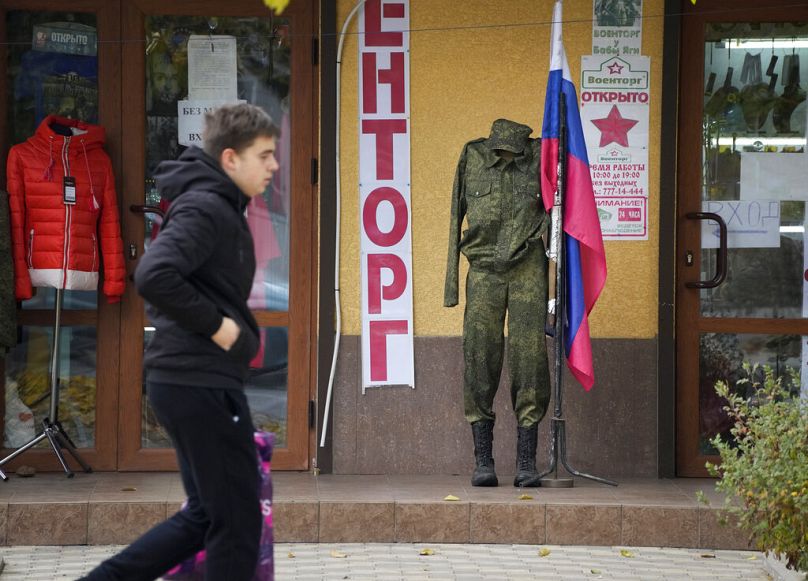
Romanian MEP Siegfried Mureșan, who leads the European Parliament's delegation to the country, stated that Moldova cannot join the EU with Russian troops on its land against its own wishes, and this issue needs to be resolved before membership can be considered.
Despite their isolation, little combat power and inferior equipment, Russian forces in Transnistria serve as a strategic diversion for Russia to destabilise Ukraine and Moldova.
While not an immediate military risk, their presence is far from benign.
Russian military intervention and continued support for Transnistrian separatists perpetually undermine Moldova's sovereignty and national unity.
Russia's military presence primarily serves as a destabilising factor, keeping both Chişinău and Kyiv in a state of constant vigilance.
A brief history of escalation
Moldova, once part of the Soviet Union and now one of Europe's most economically disadvantaged countries, is home to just 2.6 million people.
Its landlocked status, surrounded by Ukraine and Romania, and the presence of Transnistria, with its predominantly Russian-speaking population supported by Moscow, exacerbate its geopolitical vulnerability.
If not for Ukraine's unbreakable resistance, Moscow could have potentially seized control of Moldova in 2022 and established a pro-Russian administration as Russia's discourse concerning the current Moldovan leadership's illegitimacy grows increasingly vociferous.
In such a scenario, Moldova, neither large nor affluent, would have struggled to resist. Russia’s foreign minister even issued a warning aimed at preventing Moldova from becoming another state perceived as "anti-Russian”.
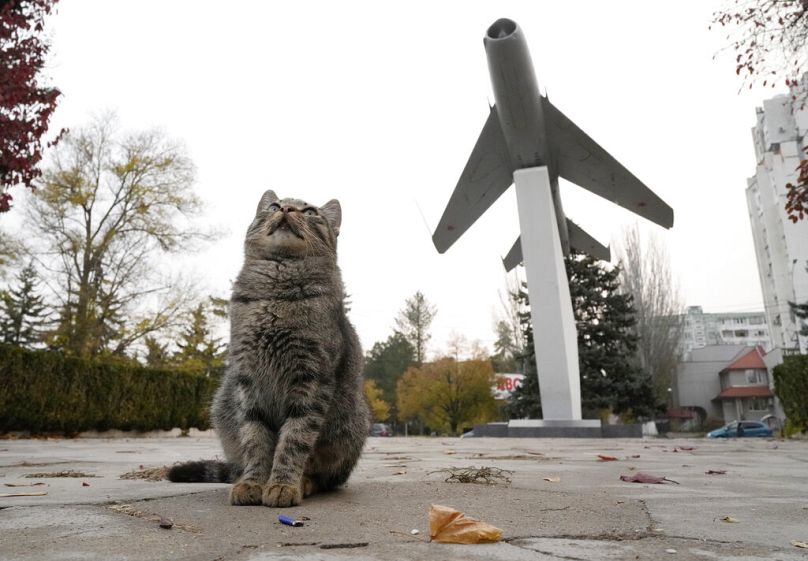
In April 2022, a senior Russian general stated that control of southern Ukraine would grant the Kremlin access to Transnistria, where he claimed Russian speakers were being oppressed.
Shortly after, explosions targeted government and military locations in Transnistria, sparking fears of the conflict spreading to Moldova.
On 2 May 2022, the Pridnestrovie local newspaper, which is published by the Russian-backed Transnistrian authorities, falsely reported that there were “bloody terrorist attacks” against the region and appealed to Russia's Vladimir Putin for help against the alleged "Nazi threat", while blaming the Ukrainian armed forces with NATO support.
They accused the Moldovan authorities of providing target coordinates, including civilian infrastructure. This gave a glimpse of how Moscow could try to use a diversion to spark hostilities against Moldova itself.
Chişinău strikes back
By February, Ukraine claimed it had intercepted a Russian plan to overthrow the government in Chişinău.
In March, John Kirby, the White House National Security Council spokesman, stated that US officials believed Russia was attempting "to weaken the Moldovan government probably with the ultimate goal of installing a more Russian-friendly administration."
Moldova responded by taking a decidedly firmer stance on the issue of Transnistria. As of February, the Moldovan legislature has moved to criminalise separatism -- a move which has elicited considerable backlash from authorities in Tiraspol, Transnistria’s capital.
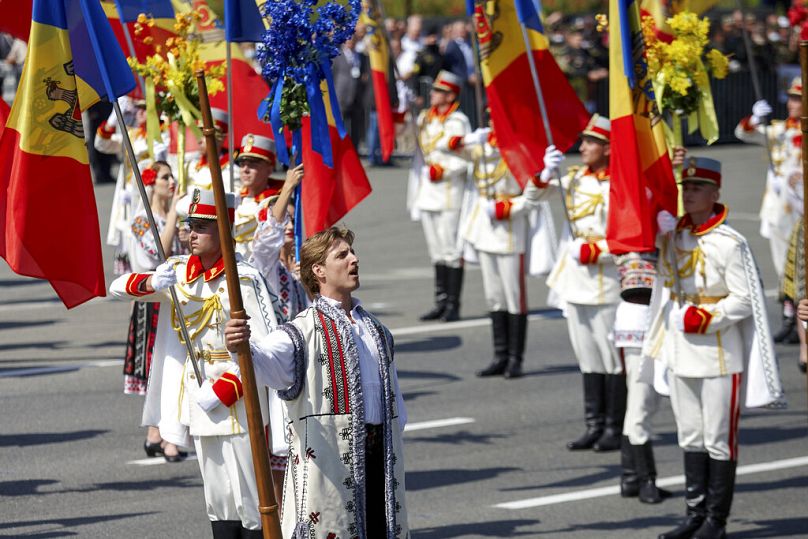
Moldova maintains that these legislative amendments will not possess retroactive effect, applying solely to future instances of separatist activities. Most recently, in July, Chişinău expelled 45 Russian diplomats over years of “hostile actions”.
The incursion of Russia into Ukraine has catalysed a comprehensive discussion on Moldova's defence capabilities and the viability of its neutrality.
For an extended period, Moscow, along with Moldovan political factions favouring Russia, has propagated the narrative that Moldova's neutral status implies more than just non-participation in military alliances -- it essentially required the government to renounce any plans to build its own military.
In this context, any attempt to modernise Moldova's armed forces was painted by propaganda as a belligerent and unconstitutional move, threatening to destabilise the region, instigate a conflict between Chişinău and Tiraspol, and potentially provoke a confrontation with Russia.
Old weapons in difficult times
However, Moldova's armed forces find themselves in a precarious position. Armed with outdated Soviet-era equipment and a force comprising approximately 6,000 active-duty personnel and a reserve of 12,000 -- many of whom have not been in active training for over 25 years -- the combat power of Moldova's military is notably lacking.
A majority of its hardware harks back to the Soviet era, with some equipment over half a century old.
However, the 2020 Military Capabilities Plan of the Moldovan National Army outlines a decade-long roadmap to modernise its defence capabilities, transitioning from Soviet-style combat systems to Western models.
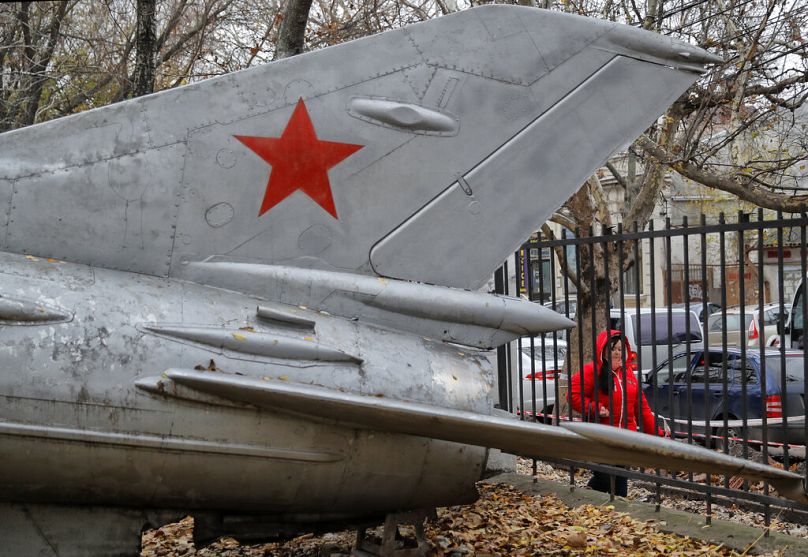
It proposed a comprehensive plan for the armed forces, incorporating technological advancements, improvements in troop readiness, and increased national defence funding.
Valeriu Mija, Secretary of State for Defence Policy and National Army Reform in the Ministry of Defence stated that helping to revive Moldova’s military would require an investment of around €250 million.
Mija further noted that the watershed moment for public opinion regarding the defence sector was undoubtedly the shocking events of February 2022 in neighbouring Ukraine.
Yet, any significant shift faces potential obstacles on the path towards comprehensive military modernisation.
Ukraine's training lessons might be of use to Moldova
However, the Russo-Ukrainian war offers a compelling argument for Western powers to aid Moldova in modernising its armed forces, a process likely to commence in the coming months and years.
This, despite the fact that the sheer neglect by Moldovan officials over the past three decades rendered this project more challenging than initially estimated.
Western nations can enhance their support by establishing and expanding training operations, similar to their successful initiatives with the Ukrainian army, which has so far trained tens of thousands.
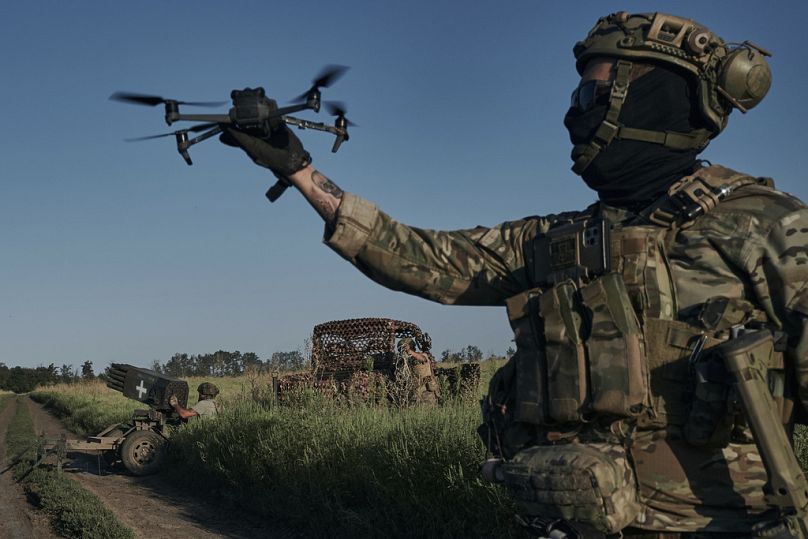
Poland serves as another prominent training hub, and countries such as Spain, France, the Czech Republic, Slovakia, Romania, and Italy, among others, are also actively conducting training programmes.
A similar program should be established for Moldova, with a substantial investment in Chişinău's military capabilities symbolising an unyielding commitment to supporting Eastern European countries facing comparable threats.
In May, the European Peace Facility (EPF) approved a measure extending financial assistance to the Moldovan Armed Forces.
This provision, amounting to €40m -- or 80% of Moldova’s military budget in 2022 -- spans 36 months and is earmarked to fund non-lethal equipment, supplies, and services.
The assistance also covers technical training for the military units, as needed. The financing will cover a broad spectrum of military needs: air surveillance systems, mobility and transportation tools, logistic supplies, command and control instruments, and cyber-defence equipment.
In October 2022, the Moldovan government signed an agreement with Germany regarding the transfer of armoured vehicles and drones to the Moldovan army and the relevant training of its soldiers.
Then in June, Poland opted to supply lethal aid to Chişinău. This support includes the provision of weapons, ammunition, and equipment intended to enhance the capacity of Moldova's police force.
Helping Moldova defend itself helps the continent as well
From the international community's perspective, investing in Moldova's military modernisation is not just about regional stability but also a strategic investment in deterring further Russian aggression.
A formidable Moldovan army would deter potential Russian advances and prevent further destabilization of Europe's eastern front. It would also set the stage for Moldova to negotiate the reintegration of Transnistria from a position of strength.
The objective behind assisting in the development of Chişinău's military is to have a leverage point in negotiations. However, this should not deter Moldovan and European officials from also adopting a more enticing approach towards the breakaway region by highlighting the economic incentives of integration.
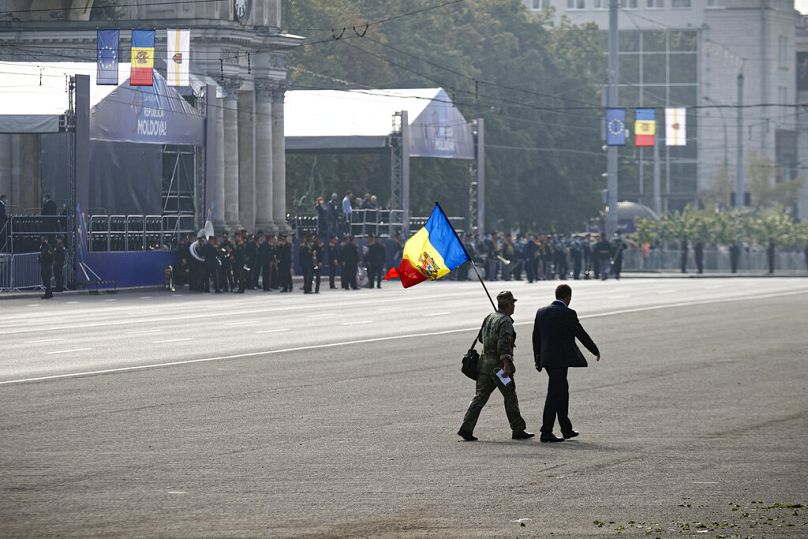
In fact, the territory’s greatest partner is not in the East, but in the West. The value of Transnistria's exports to the EU, mainly comprising electricity, steel, and textiles, is estimated to be four times higher than its exports to Russia.
Over time, the economic model in Transnistria has also shifted away from its traditional socially oriented nature, transitioning towards a stricter spending regime.
Due to Russia's ongoing war against Ukraine, subsidies to Transnistria are expected to only further decline as more resources are diverted to support the war effort. In fact, Russian financial assistance has been on a downward trend since 2014.
Ensuring Moldova has a proper military to defend itself also protects the greater European continent, much like Ukraine is doing.
By taking a more proactive stance, European investment will put Moldova in a position of strength to negotiate the inclusion of Transnistria back into a unified state in the future.
It will also take away Russia’s power in the country to destabilise Moldova, thereby bringing Europe one step closer to cherished peace across the continent. Now, the time has come to help Moldova rebuild its army and bring an end to Europe’s frozen conflicts.








